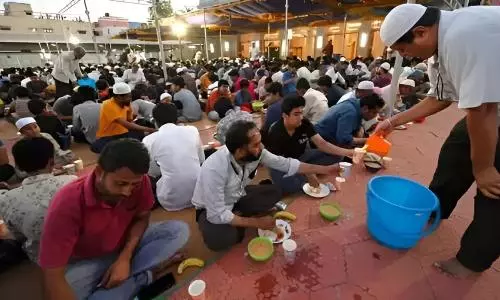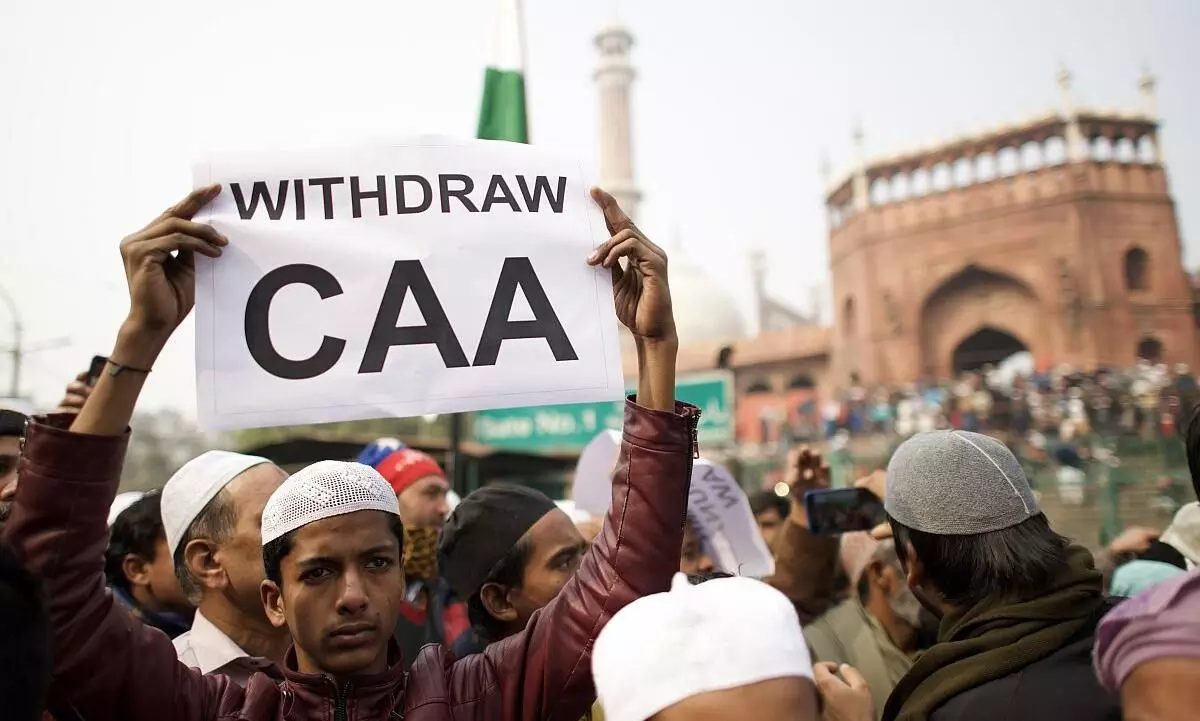
Citizenship Amendment Act: What Amit Shah says - and doesn't say
text_fieldsProtests and debates have risen again after the Rules under the Citizenship Amendment Act passed in December 2019, were released on the 11th of this month. The CAA is a legislation providing for Hindus, Jains, Buddhists, Parsis, Christians, and Sikhs who immigrated to India from Pakistan, Bangladesh, and Afghanistan before December 31, 2014, and have stayed in India for at least five years to be given Indian citizenship on fast track. Normally, once an Act is passed by the Parliament, the rules must be made within six months, but in the case of the CAA, the government extended this deadline many times, mostly citing delay caused by COVID-19. In the meantime, more than two hundred petitions against the law were filed and are to be considered by the Supreme Court from today. Most of the petitions also seek a stay on the implementation of the law until the final verdict. It should not be overlooked that there was an unusual delay on the part of the court too.
Also read: Nitish Kumar asserts CAA won’t be implemented in Bihar
Home Minister Amit Shah's recent remarks in this regard at an event in Delhi have taken on more significance now. As if to counter criticisms, he emphasized that the CAA is meant to grant citizenship to new arrivals and not to take away the citizenship of existing citizens. However, one will also have to consider the National Register of Citizens (NRC) related to the Citizenship Act, and the NPR (National Population Register), which is the process used as basis for verifying data of citizenship. It is difficult to believe so easily that the Citizenship Act has nothing to do with these two. For, Amit Shah himself has repeatedly said that NRC will be implemented nationwide after the preparation of the citizenship register in Assam. NPR is now stalled due to the stalled census process since 2021. Shah is also on record, in aggressive terms, that the chronology would be of CAA first and then NRC will kick in. On this basis, it is reasonable to suspect that the government's plan envisages a process of marking people who do not possess the type of documents prescribed by NRC as non-citizens of India as it happened in Assam.
Also read: Will apply for citizenship under CAA: Union Minister Shantanu Thakur
The confusing statements happened to be typical of the Modi-Amit Shah duo. Immediately after the CAA law was passed, the Prime Minister said in the program at Ramlila Maidan that the government has no plan to roll out the NRC nationwide and it was implemented in Assam only because the Supreme Court had ordered it. But as opposed to from this, more than once in 2019, Amit Shah said that NRC would be implemented across the country and citizenship would be given to those eligible from abroad first, after that every "intruder" who came to our motherland would be found and deported. In this context, it is not believable that the goal of CAA is to only grant citizenship. Amit Shah's statement that NRC is for border states is also not credible. When the elections approach, statements would flow in such a way as to consolidate the Hindu votes by keeping the Muslims on the other side. It is not for nothing that the ruling government has come out with steps to implement a law that was passed four years ago when the elections are at the doorstep.
Also read: NRC excludes 7 lakh Muslims and 8.5 lakh Hindus, says Himanta Biswa Sarma
The Citizenship Amendment Act, 2019, which determines whether or not to grant citizenship based on religion, in the first place is a violation of the right to equality under Article 14 of the Constitution. The Government contends that the article provides for reasonable classifications, as it happens for many other purposes of population classifications and justifies the CAA discrimination under that category. Secondly, it is not expressly mentioned in the law, the argument is that it is to give shelter to victims of religious discrimination. In fact, the majority of the people who will apply for citizenship under CAA entered the country for reasons other than mere religious persecution. There are many who arrived for financial reasons too. Among them, only Muslims will be discriminated against. Secular democrats insist that this is not just a Muslim problem because this is inconsistent with India's very secular principles. Thirdly, those like the people from Bangladeshis and those from neighboring countries like Myanmar who migrated to the North Eastern states are not acceptable among the people of the states where they live. In addition, sections like Sri Lankan Hindus in Tamil Nadu are not entitled to citizenship as per the new law. Now if the new NRC is prepared, and if even those who have been removed from the list are given refuge, Muslims will be left out there too. It is clear that the CAA is discriminatory and unjust in any way. It is the hope of all Indians who believe in democracy that the Supreme Court will make a just decision on these issues.
Also read: Closely monitoring CAA implementation: US State Department























